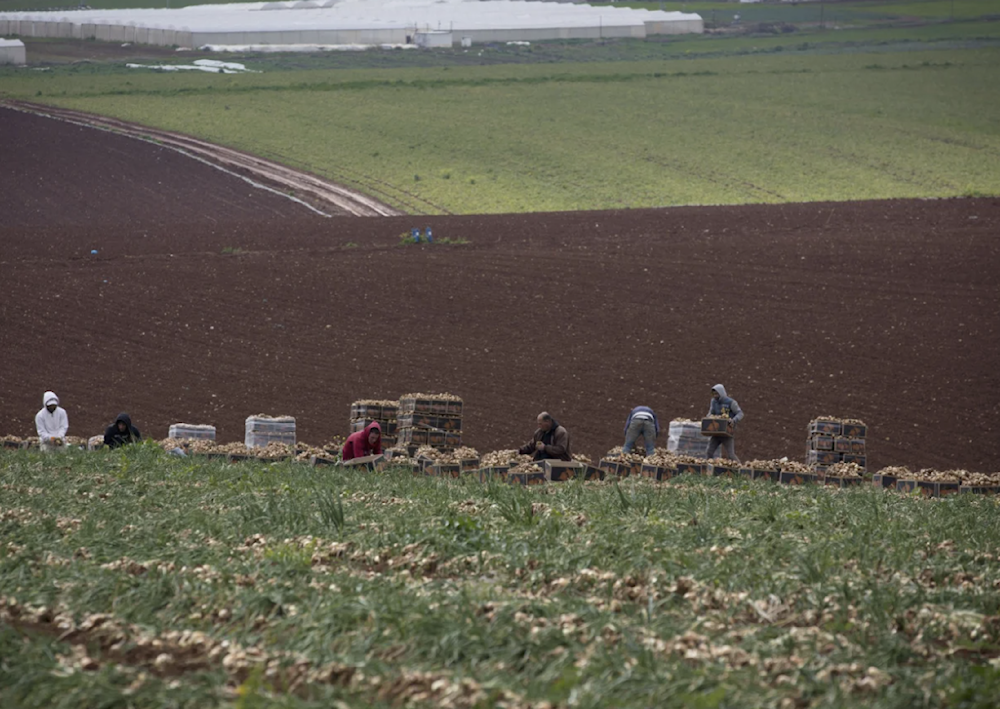"Israel" seizes 1,042 dunams in Tubas, Palestinian Jordan Valley
"Israel" seizes 1,042 dunams in the northern Jordan Valley through nine military orders to build a 22-km road.
-

Palestinian farmers harvest onions in Palestine's Jordan Valley in the West Bank on February 10, 2020. (AP)
Israeli occupation authorities have issued nine separate military seizure orders confiscating a total of 1,042 dunams of Palestinian land in the northern Palestinian Jordan Valley, including in the towns of Tammun, Tayasir, Tallouza, and Tubas, to construct a new 22-kilometer road.
The Wall and Settlement Resistance Commission, an official Palestinian agency, reported that the orders form part of a single, large-scale infrastructure project, extending from Ein Shibli in the south to al-Aqaba in the north. Although the orders were issued separately, their combined mapping reveals a unified plan to create a wide bypass road that cuts through expansive agricultural and residential areas.
Road to enforce de facto annexation
According to the Authority's head, Muayyad Shaaban, the road passes through critical Palestinian farmland and surrounds Khirbet Yarza, cutting residents off from grazing land in the eastern plains.
These areas encompass tens of thousands of dunams used by Palestinian communities for agriculture and livestock.
Shaaban said that while labeled a “security road,” the project is clearly strategic, designed to connect Israeli military bases and settlements in the Palestinian Jordan Valley with the occupied territories. He warned that this represents a deliberate attempt to fragment Palestinian geographical continuity and tighten control over the area’s resources and movement routes.
“The road creates a new axis of control linking the Jordan Valley with the occupied interior, strengthening the occupation's grip on land between Tubas, Tammun, and Tayasir,” Shaaban expressed.
Military orders serving settlement expansion
Shaaban emphasized that while seizure orders are classified as temporary and for military purposes, historical precedent shows that 90% of so-called military roads are eventually converted to serve settlers’ needs or become permanent separation routes isolating Palestinian communities.
He added that the road project comes amid rising settler violence and increased Israeli aggression in the area, warning it may be part of a wider plan to consolidate de facto annexation of the Jordan Valley under the guise of military infrastructure.
On the legal front, Shaaban described the use of multiple smaller orders—rather than a single unified one—as a tactic aimed at minimizing public and international backlash by concealing the full scale of the project.

 2 Min Read
2 Min Read








